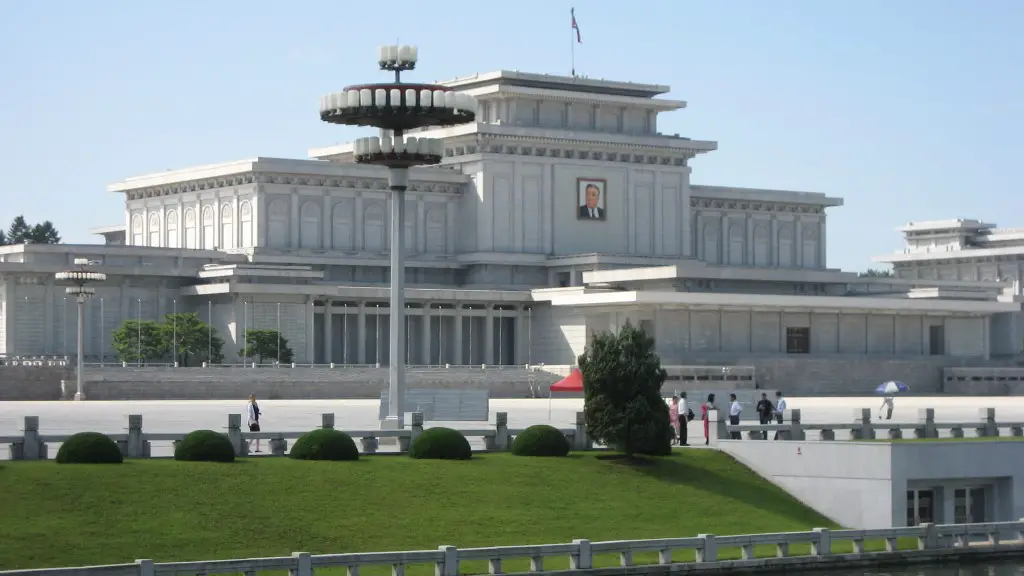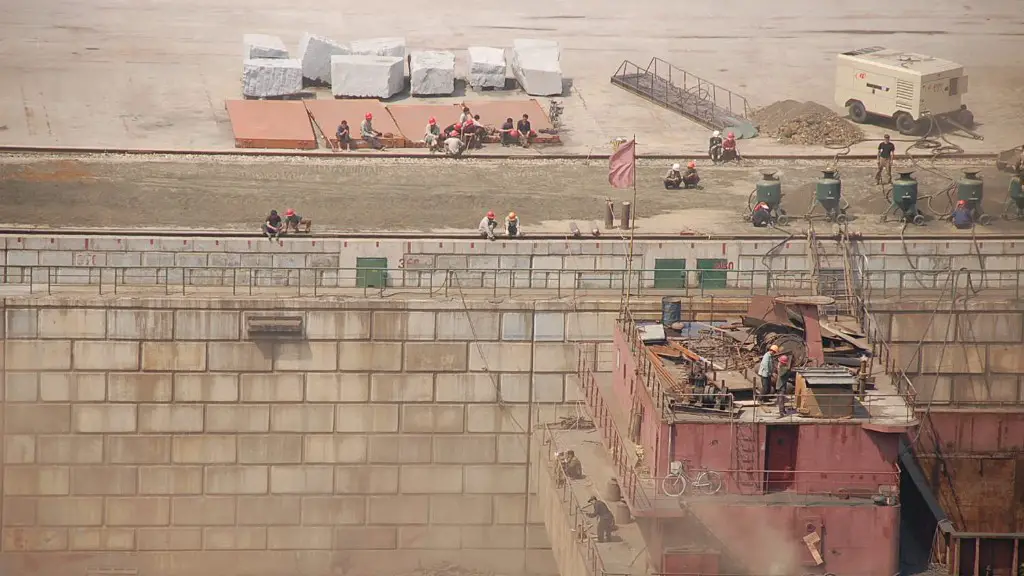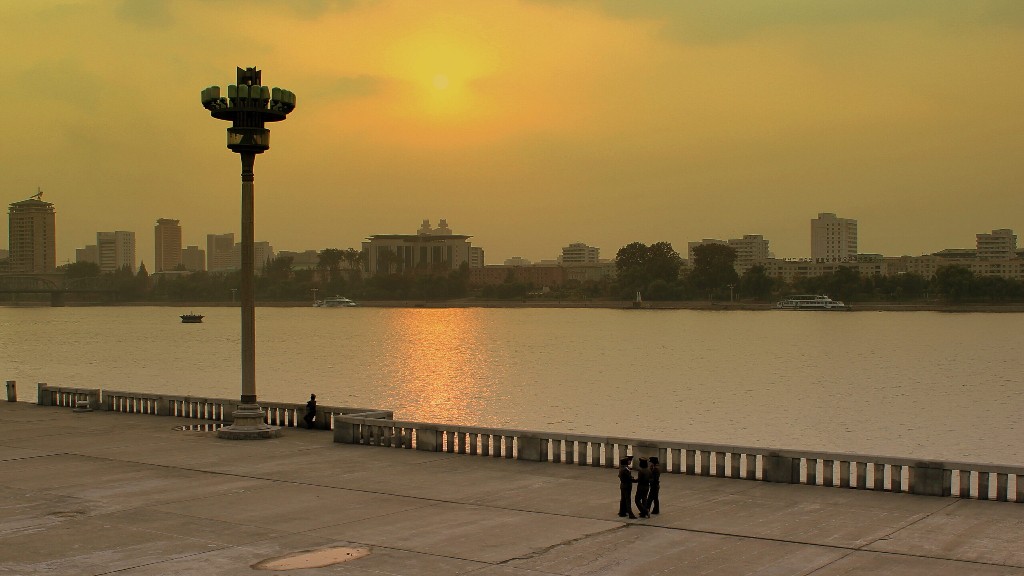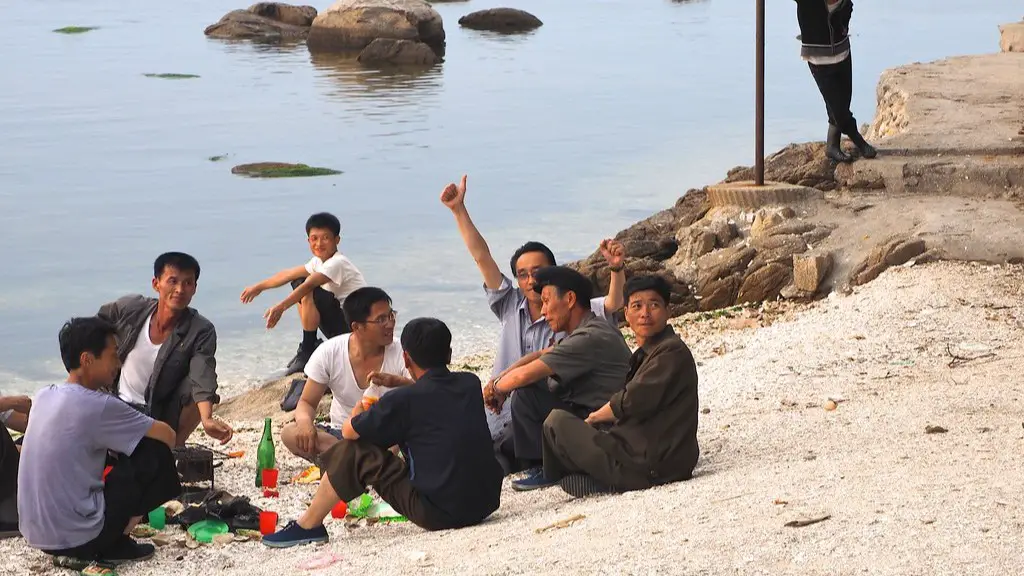The issue of North Korea’s growing nuclear and ballistic missile capability is one of the greatest threats to international security and peace. Despite the UN Security Council’s numerous condemnations and economic sanctions, North Korea continues to pursue its dangerous path, testing new missiles and nuclear warheads with alarming frequency. Naturally, the question arises as to why we don’t bomb North Korea and put an end to its nuclear program?
The most responsible answer is that a bombing campaign of North Korea could have catastrophic consequences for the region. On a purely military basis, the potential for massive casualties and destruction is huge with North Korea’s substantial military including nukes and delivery systems, which could be used even in the face of total destruction. Moreover, North Korea’s artillery along the Military Demarcation Line with South Korea which is composed of more than 11,000 pieces and expected to be able to shell Seoul in as little as 5 minutes, would result in mass casualties and destruction. North Korea could also deploy its nuclear arsenal and contaminate much of the region, not to mention cause massive disruption to America’s allies and assets in the region.
On the other hand, there is the diplomatic dimension. Rather than a merciless bombing campaign, experts instead recommend the use of economic and diplomatic means to bring about a peaceful resolution of the dispute. Some popular solutions include economic sanctions, humanitarian aid, and diplomatic dialogue. The aim is to make short and long-term political, economic, and financial commitments to North Korea, while at the same time encouraging North Korea to accept better international relations and be a more constructive partner in global affairs.
Experts have also pointed out the risk of a wider regional conflict if a military action is taken without adequate preparation. In particular, the involvement of China, which is North Korea’s closest ally and a major regional power, must be taken into consideration. A military strike against North Korea could risk a regional conflict that is much wider than the current nuclear issue. This could result in an ugly regional war with unpredictable consequences.
Besides the long-term economic and diplomatic solutions, the UN has also taken steps to deter North Korea from further provocations. In 2009, the UN imposed Resolution 1874, which imposes an arms embargo and other sanctions for its nuclear and ballistic missile activities. This resolution has had a significant impact on North Korea’s military activities, forcing it to scale down its ambitions.
Thus, while it would be attractive to launch a military campaign against North Korea, the consequences would be grave. The international community must find alternative solutions to deal with North Korea, as military action could have devastating consequences.
What Effect Would Sanctions Have on North Korea?
Sanctions have long been proposed as a means to control North Korea’s behavior. The United States and the United Nations have imposed numerous economic sanctions against North Korea in an effort to force it to abandon its nuclear and ballistic missile activities. But sanctioning a country such as North Korea, which is already under extreme economic hardship, is not easy and could lead to unintended consequences.
Initially, sanctions limit the amount of hard currency that can be obtained by North Korea and limit its access to the international markets. This, in turn, restricts North Korea’s ability to develop and modernize its nuclear and ballistic missile programs. Sanctions also reduce North Korea’s ability to purchase military hardware and advanced technology from other countries, further hindering its nuclear program.
But there is a risk that sanctions could backfire and lead to an increase in tensions between North Korea and its neighbors. This could result in increased military activity, ending in a more dangerous regional arms race and increasing the chances of a conflict. Additionally, an increasingly poor and desperate North Korean leadership may become more unpredictable and more likely to engage in risky behavior.
Ultimately, the effectiveness of sanctions on North Korea has been limited. North Korea has continued to modernize its nuclear and ballistic missile programs despite the sanctions, and the Nuclear Non-Proliferation Treaty and other international treaties have been unable to deter the North Koreans.
Sanctions have been most effective when combined with diplomatic initiatives. For example, the Geneva Agreements of 1994 and the Six-Party Talks of 2003 were successful in temporarily suspending North Korea’s nuclear program. This combined diplomatic and economic pressure seems to have worked best for the international community in dealing with North Korea.
What Role Could The United Nations Play?
The United Nations is the primary international body tasked with maintaining global security and peace and is the most appropriate body to deal with issues such as North Korea. The UN has a long list of instruments it can use to attempt to bring North Korea into compliance with international law.
The Security Council has the power to impose economic sanctions, with numerous sanctions already in place against North Korea. Additionally, the United Nations can use diplomatic tools such as the sending of emissaries, sponsoring peace talks and undertaking confidence-building measures.
In the past, the UN has also shown a degree of flexibility in dealing with North Korea, allowing for negotiations and flexibility in the timing of sanctions. Additionally, the UN has maintained its focus on finding a peaceful resolution to the situation in North Korea, as opposed to resorting to military action or a regional arms race.
The UN also plays an important role in monitoring the situation in North Korea and in monitoring the implementation of sanctions. It has also been a key player in facilitating diplomatic dialogues on the issue of North Korea and the nuclear threat.
Ultimately, the United Nations is the only international body with the capacity and flexibility to handle the issue of North Korea in a way that does not result in a catastrophic escalation of the conflict.
Would Engagement Work?
Engagement has often been proposed as an alternative to conflict and as a means to resolve differences between countries. In the case of North Korea, the policy of engagement involves allowing North Korea to become more integrated into the international community and allowing North Korea access to the international markets and more freedom of economic and political choice.
Proponents of engagement argue that it is the only way to break the diplomatic stalemate between North Korea and the international community. Moreover, through engagement, North Korea could become a more responsible member of the international community, as it would no longer be ostracized and isolated. It could also lead to more transparency and open dialogue, which may give the international community more insight into North Korea’s motives and behavior.
Engagement policies have been tried in the past and have produced some positive results. For example, the 1994 Geneva Agreements and the 2003 Six-Party Talks resulted in North Korea temporarily suspending its nuclear program. Additionally, North Korea has recently opened up diplomatic channels with South Korea, the US, Japan, and China in an effort to mend relations and find a peaceful resolution to the nuclear conflict.
Engagement is not without its risks, however. There is a risk that North Korea could use the talks to win concessions and continue the development of its nuclear program. Moreover, there is a risk that openness and engagement could lead to increased military activity in the region, as rival countries seek to solidify their strategic positions.
Ultimately, engagement is a viable policy option for the international community and a better alternative to military action or economic sanctions. If properly implemented and monitored, it could provide an pathway to peace in the Korean peninsula and prevent a dangerous regional conflict.
What Can Be Done To Increase The Effectiveness Of Diplomacy?
Diplomacy has long been seen as the best way to find a peaceful solution to the North Korean crisis and to move away from a military confrontation. However, the efficacy of diplomacy has been overshadowed by the overreach of economic sanctions and coercive security measures such as the US and United Nations Security Council.
To be more effective, diplomacy must be based on dialogue and respect. The international community must make it clear to North Korea that its acceptance into the global community is dependent on more responsible behavior. In addition, Western countries should be willing to make concessions and gestures of good will in order to engage North Korea in meaningful negotiations.
The international community must also be willing to engage in meaningful negotiations with North Korea on issues such as economic development, disarmament, and human rights. This could be done through an international forum that is open to all sides and wherein the stakeholders can come to mutually agreeable decisions. Additionally, North Korea must be included in existing forums and organizations such as the Six-Party Talks and the UN Security Council. This would allow for constructive dialogue and the identification of common ground.
Ultimately, the most important thing is to focus on the long-term goals of peace and security in the region. All sides must be willing to compromise and make concessions if a viable solution is to be found in the North Korean crisis. More importantly, the international community must remain committed to finding a negotiated solution rather than resorting to military action or economic sanctions.





